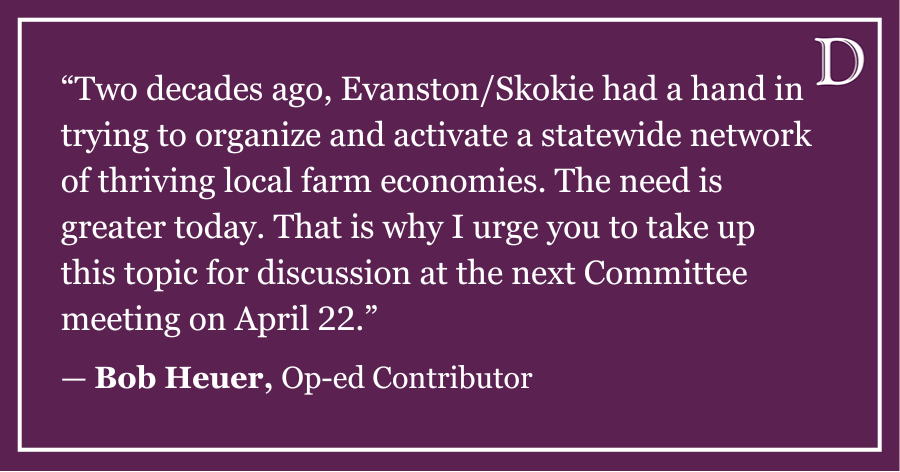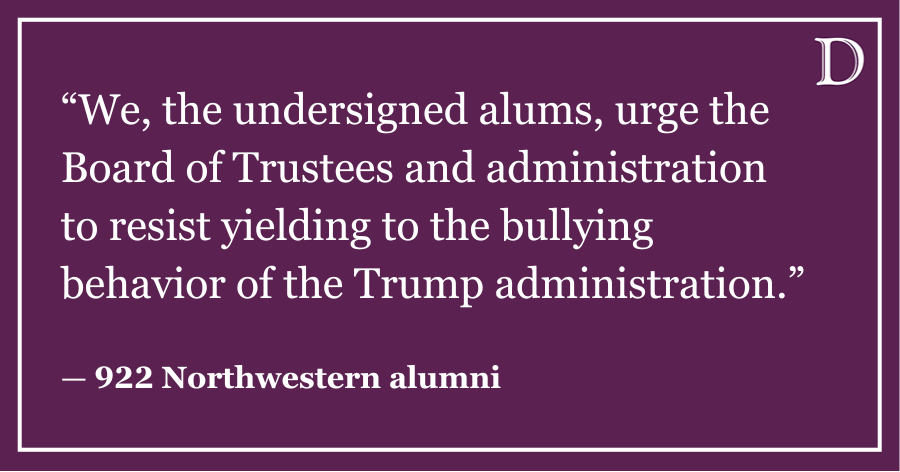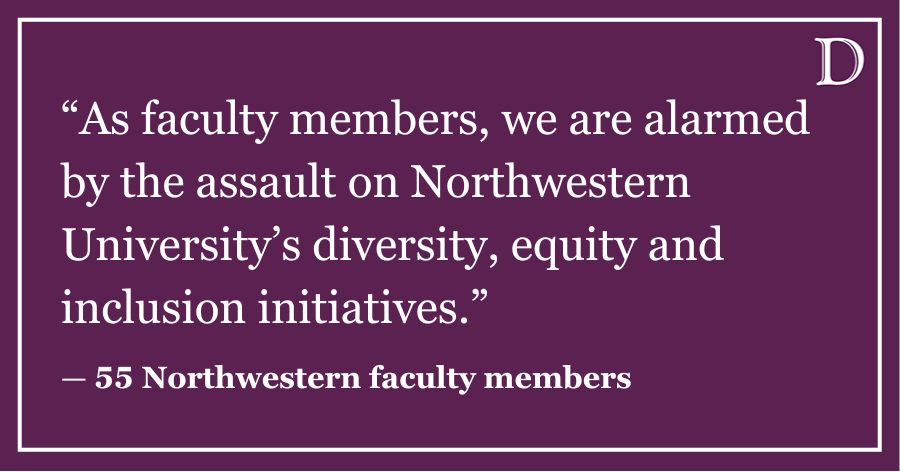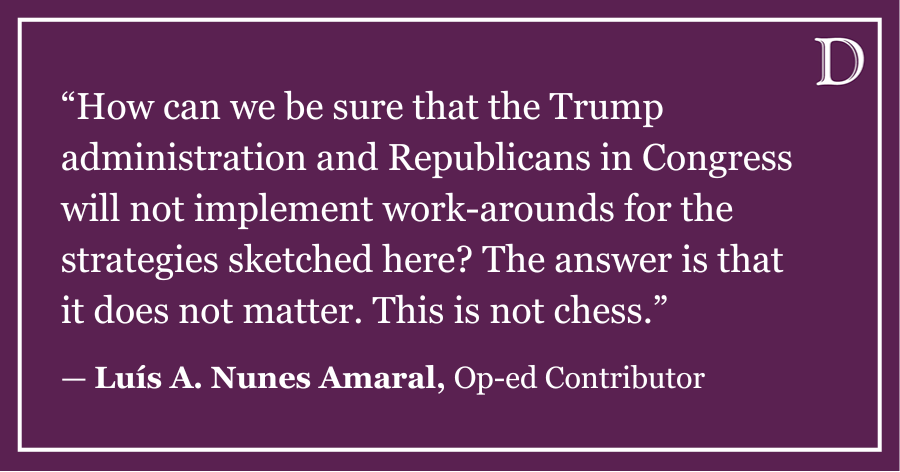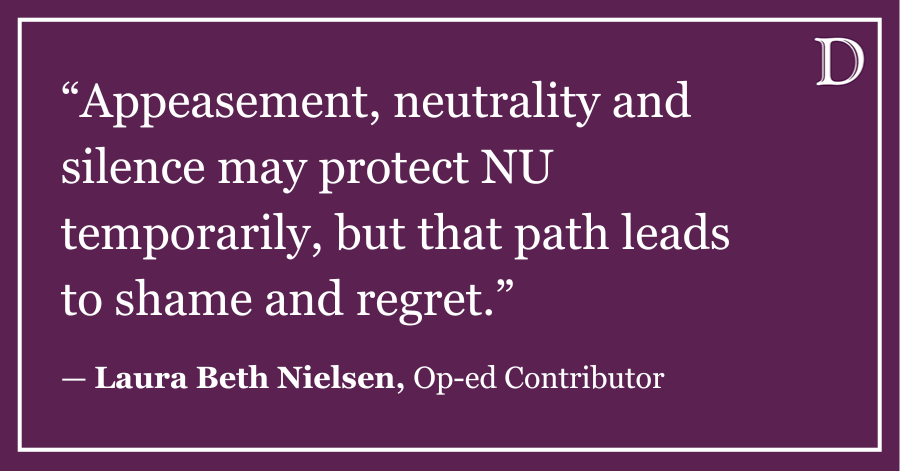Each year on Jan. 28, Northwestern University gathers to honor its founders. On that date in 1851, the Illinois Legislature approved Northwestern’s Act of Incorporation. Soon it will be Founders’ Day 2013, and we will celebrate with cake and self-congratulations.
Despite these festivities, Northwestern has a shameful past for which it must atone. In order to grow, institutions must remember their past, but this University has chosen amnesia. We must not forget that John Evans, the man who established this University and served as the chair of the Board of Trustees, was morally and politically culpable for one of the most despicable acts of genocide in American history: the 1864 Sand Creek Massacre.
In 1862, President Lincoln appointed Evans the territorial governor of Colorado, a land in which white settlers were intent on conquering native lands for their own benefit. Evans, a railroad magnate, was one of those who believed the “Indian problem” could be solved through violence. He wrote a proclamation declaring that “all hostile Indians would be pursued and destroyed,” claiming that “most of the Indian tribes of the plains are at war and hostile to the whites,” and authorizing all citizens “to kill and destroy, as enemies of the country, wherever they may be found, all such hostile Indians”.
The native peoples – the Cheyenne and the Arapahoe – were camped at Sand Creek under an American flag and had been promised peace; they hoped to negotiate with the white settlers under their leader, Black Kettle. Evans, on the other hand, allowed his military commander, John Chivington, to accomplish their aims by means of a massacre of the Native peoples. The details are gruesome. John Smith subsequently told Congress, “I saw the bodies of those lying there cut all to pieces, worse mutilated than any I have ever saw before; the women cut all to pieces … With knives; scalped; their brains knocked out; children two or three months old … By whom were they mutilated? By the United States troops.” Estimates placed the number killed in the hundreds, mostly women and children. The crime was so obviously deplorable that Congress held hearings, and President Andrew Johnson removed Evans from office for covering up the massacre and decorating Chivington and his soldiers.
However, this story is truly about Northwestern University. After being indicted and removed from office, John Evans was welcomed back as the chair of our Board of Trustees throughout his life. This act of extermination, benefiting Evans’ railroad interests, built this University. After the massacre and because of Evans’ declaration that all Indians be considered hostile — and all peaceful Indians demonstrate this by relocating to camps under U.S. observation — Indian land in the Colorado Territory was opened to the railroads and sold to white settlers. Throughout his life John Evans remained our chief benefactor, making this University one that was built on the blood of native peoples.
On this 162nd Founders’ Day, we call upon President Morton Schapiro to establish a Commission on Truth and Justice that will have as its task the unearthing of the history of the Sand Creek Massacre and the extent of this University’s benefit from John Evans. This commission must be composed of administrators, trustees, faculty, students, alumni, and, crucially, representatives of affected native and indigenous communities. We demand a full accounting without fear and without deception. With this detailed historical record, we then call upon the president and the Board of Trustees to take steps to remember our history and to ensure that the University is committed to justice, through memorials, commemorations, lectures, scholarships, and support of the affected community. We do not prejudge the outcome but insist on an open and generous process.
In 2003, Brown University was faced with the recognition that parts of its campus were built through their founder’s connection with the slave trade. The investigation, sponsored by President Ruth Simmons, agonizing though it was, did not weaken Brown but made it stronger and more inclusive. Knowledge, even painful knowledge, frees us as scholars and as students and will guide us in the development of a more ethical community.
With respect, with dignity, and with determination, we call on President Schapiro to announce this commission on Founders’ Day. This is the moment for Northwestern to confront its past. It’s about time.
Gary Fine, sociology professor
Adam Mendel, Weinberg senior
Heather Menefee, Weinberg sophomore
Forrest Bruce, SESP freshman
Wilson Smith, Bienen and Weinberg freshman



